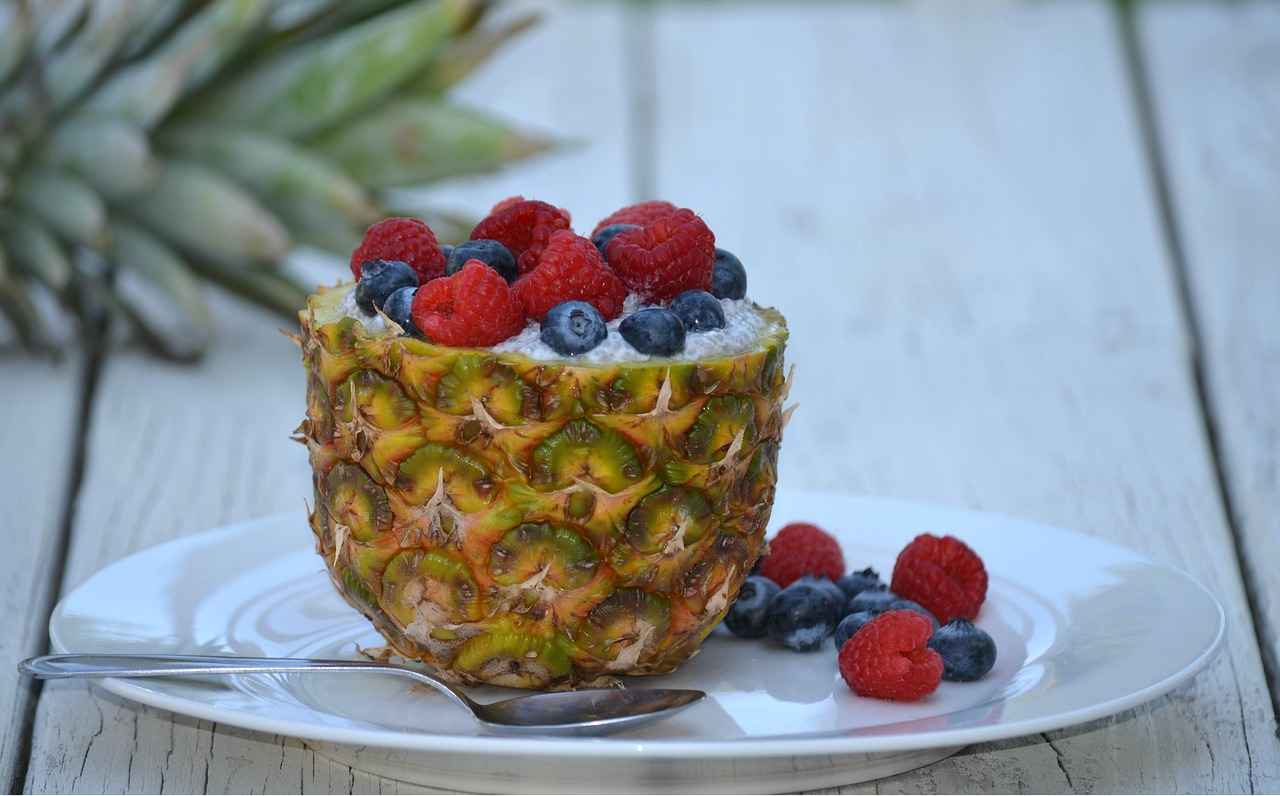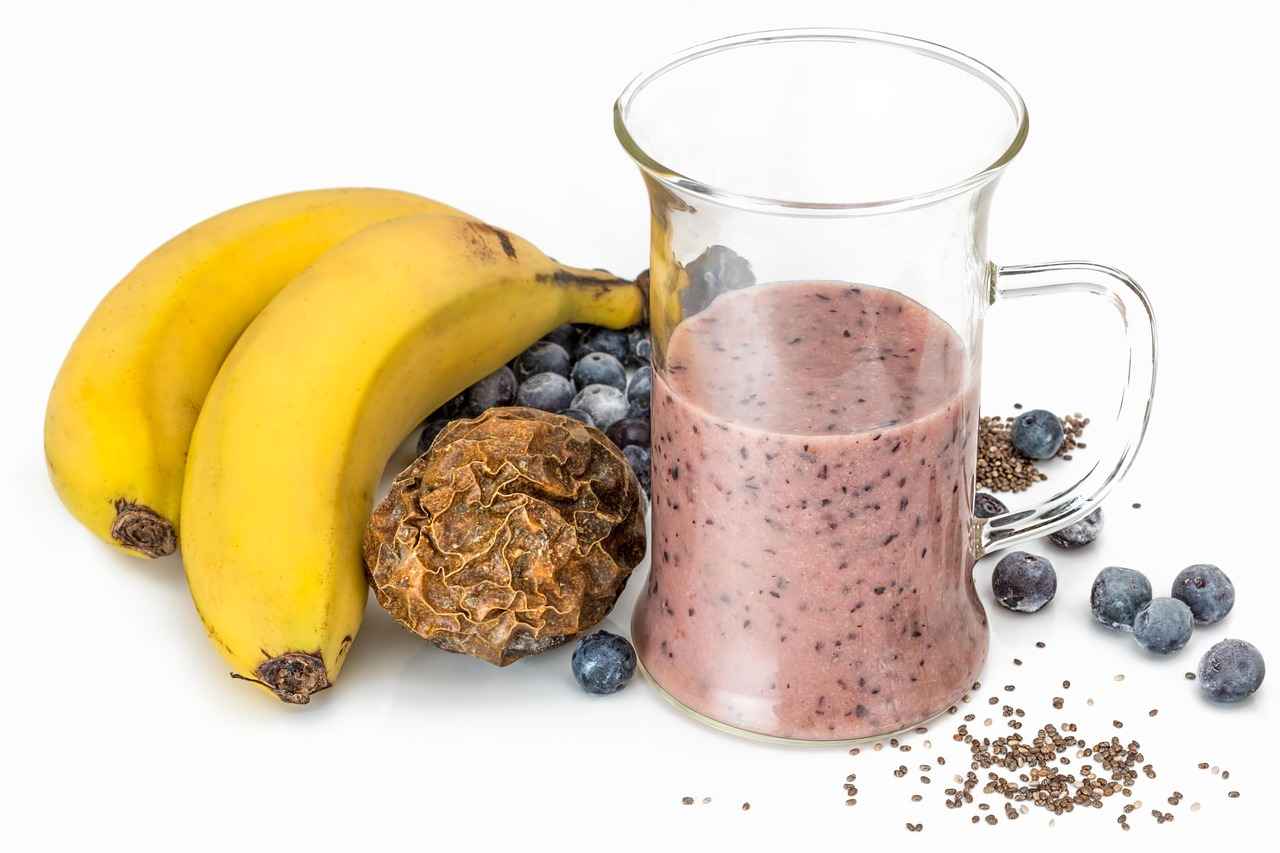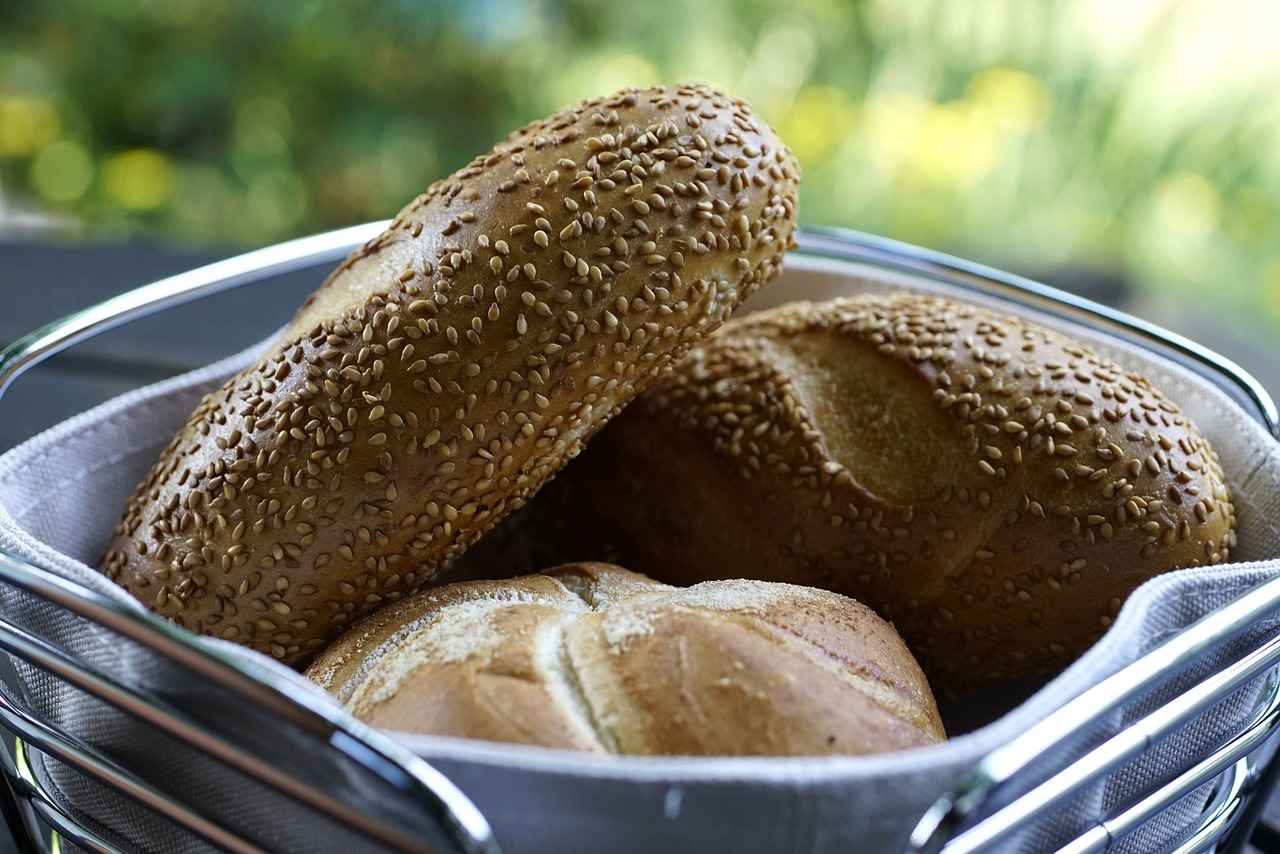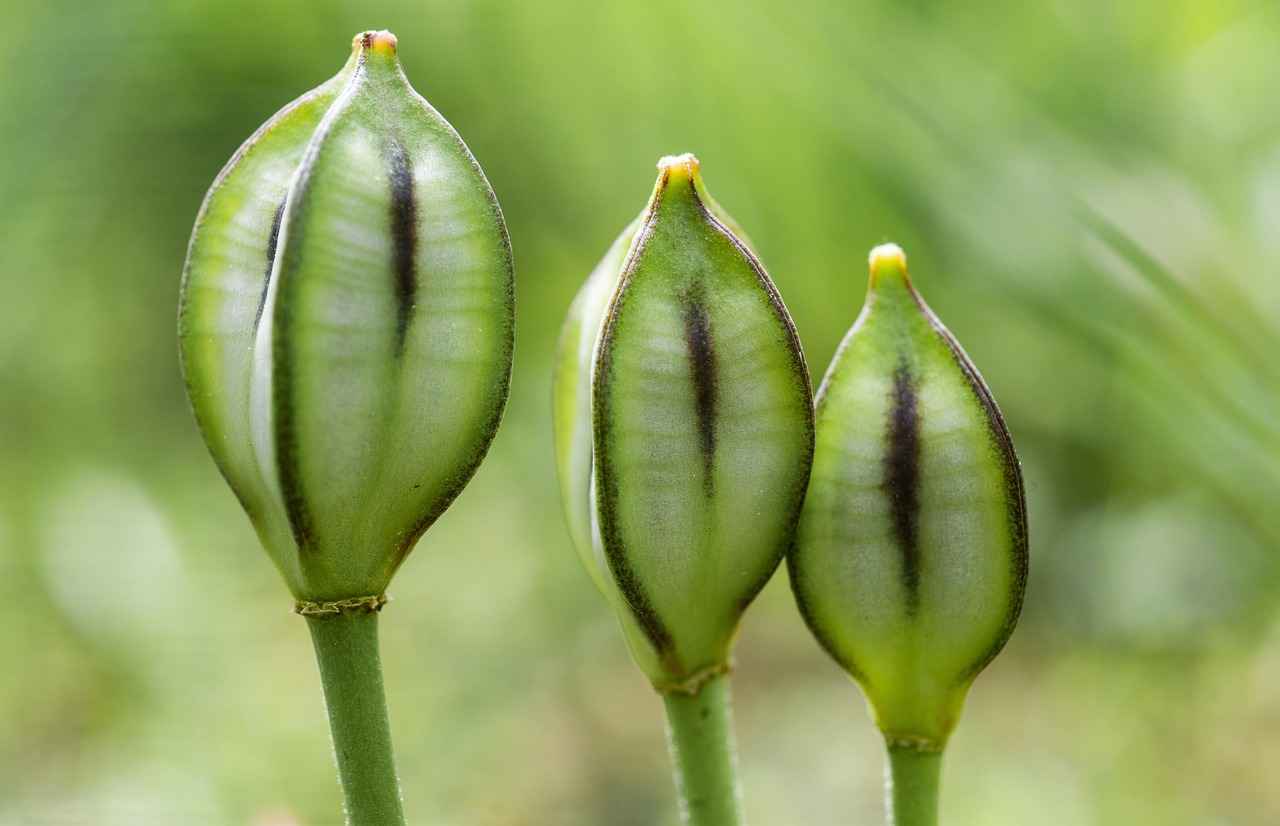This article delves into the potential weight loss benefits of chia seeds, supported by scientific research and expert opinions. We aim to provide a comprehensive understanding of their nutritional value and effectiveness in weight management.
Chia seeds, derived from the Salvia hispanica plant, are tiny black or white seeds renowned for their impressive nutritional profile. They are particularly high in omega-3 fatty acids, fiber, and protein, making them a popular choice among health enthusiasts.
Chia seeds may support weight loss due to their unique ability to absorb water and expand in the stomach, which can promote a feeling of fullness. This effect can lead to a reduction in overall calorie intake.
The fiber found in chia seeds is essential for both digestion and satiety. Each serving contains about 11 grams of fiber, which can help regulate appetite and support weight loss efforts. The presence of fiber aids in slowing digestion, allowing for prolonged feelings of fullness.
Chia seeds contain both soluble and insoluble fiber. Soluble fiber forms a gel-like substance in the stomach, which slows digestion and prolongs feelings of fullness. This dual fiber content contributes significantly to digestive health.
The fiber in chia seeds also promotes healthy gut bacteria, which is vital for metabolism and overall health. A balanced gut microbiome can influence weight management and help reduce cravings.
Chia seeds are an excellent source of plant-based protein and healthy fats. These nutrients can enhance satiety and provide sustained energy throughout the day, making them a valuable addition to a weight loss plan.
Several studies have examined the effects of chia seeds on weight loss. Research indicates that incorporating chia seeds into a balanced diet may assist with weight management. However, results have varied.
Clinical trials have produced mixed outcomes regarding the effectiveness of chia seeds for weight loss. Some studies report positive results, while others suggest that the weight loss effects may be minimal. This highlights the need for further research to understand their role in weight management.
Understanding the long-term effects of chia seeds on weight loss is an ongoing area of research. Continued studies are essential to evaluate their sustainability in weight management over time.
Integrating chia seeds into your diet can be both simple and versatile. They can be consumed in various forms, making them easy to add to meals and snacks.
Chia puddings and smoothies are popular and nutritious ways to consume chia seeds. They can be blended into smoothies or soaked in liquid to create a delicious pudding.
Chia seeds can also be added to baked goods, such as bread and muffins, or used as a thickening agent in soups and sauces, enhancing both nutrition and texture.
While chia seeds are generally safe for most individuals, some may experience digestive issues if consumed in excess. It’s essential to consume them in moderation to avoid potential side effects.
Overconsumption of chia seeds can lead to bloating, gas, or constipation due to their high fiber content. Gradually increasing intake can help mitigate these effects.
Although rare, some individuals may be allergic to chia seeds. It’s crucial to monitor for any adverse reactions when introducing them into your diet.
Incorporating chia seeds into a balanced diet can be beneficial for weight loss, but they are not a standalone solution. A holistic approach that includes a healthy lifestyle is essential for effective weight management.

What Are Chia Seeds?
Chia seeds, originating from the Salvia hispanica plant, are remarkably small yet incredibly nutrient-dense. These tiny seeds, which can be black or white, have gained immense popularity in the health food industry due to their impressive nutritional profile. They are particularly renowned for their high content of omega-3 fatty acids, dietary fiber, and protein, making them a favored choice among health enthusiasts.
These seeds are not only versatile but also easy to incorporate into various meals and snacks. Their unique ability to absorb water allows them to expand significantly, creating a gel-like consistency that can enhance the texture of dishes. Chia seeds are often touted for their potential health benefits, including weight management, improved digestion, and enhanced heart health.
Chia seeds are a powerhouse of nutrients. A single ounce (about 28 grams) of chia seeds contains:
- 11 grams of fiber, which supports digestive health and promotes a feeling of fullness.
- 4 grams of protein, making them an excellent source of plant-based protein.
- 5 grams of omega-3 fatty acids, which are essential for heart health.
- Calcium, magnesium, and phosphorus, contributing to bone health.
Incorporating chia seeds into your diet can be beneficial for several reasons:
- Weight Management: Due to their high fiber content, chia seeds can help regulate appetite, leading to reduced calorie intake.
- Digestive Health: The soluble fiber in chia seeds helps maintain gut health by promoting regular bowel movements and supporting healthy gut bacteria.
- Energy Boost: With a balanced blend of protein, fats, and carbohydrates, chia seeds provide sustained energy, making them an ideal snack for active individuals.
Integrating chia seeds into your daily routine is simple and can be done in various ways:
- Chia Puddings: Soak chia seeds in your favorite milk or plant-based alternative to create a delicious and nutritious pudding.
- Smoothies: Blend chia seeds into your smoothies for added texture and nutrition.
- Baking: Incorporate chia seeds into baked goods like muffins and bread for an extra nutritional boost.
- Salads and Soups: Sprinkle chia seeds on salads or stir them into soups for added crunch and nutrients.
While chia seeds are generally safe for most individuals, it’s essential to consume them in moderation. Some potential risks include:
- Digestive Issues: Excessive consumption may lead to bloating or gas due to their high fiber content. Gradually increasing intake can help mitigate these effects.
- Allergic Reactions: Though rare, some people may be allergic to chia seeds. It’s advisable to monitor for any adverse reactions when trying them for the first time.
In conclusion, chia seeds are a versatile superfood that can enhance your diet with their numerous health benefits. Their rich nutrient profile, coupled with their ability to promote satiety, makes them an excellent addition to any weight management plan. By incorporating chia seeds into your meals, you can enjoy their benefits while adding variety to your diet.

How Do Chia Seeds Aid Weight Loss?
Chia seeds have gained popularity in recent years as a superfood, particularly for those looking to manage their weight. Their unique properties make them a suitable addition to a balanced diet aimed at weight loss. In this section, we will explore how chia seeds aid weight loss and the science behind their effectiveness.
Chia seeds, derived from the Salvia hispanica plant, are not just tiny seeds; they are a powerhouse of nutrients. They are rich in omega-3 fatty acids, fiber, and protein, which contribute to their ability to promote weight loss. One of the most remarkable features of chia seeds is their capacity to absorb water.
When chia seeds are mixed with liquid, they can absorb up to 12 times their weight in water, forming a gel-like substance. This expansion in the stomach can create a feeling of fullness, which may help in reducing overall calorie intake. The sensation of satiety can lead to less frequent snacking and smaller portion sizes during meals.
Each serving of chia seeds contains about 11 grams of fiber, which is essential for healthy digestion. Fiber not only aids in digestion but also plays a crucial role in regulating appetite. The high fiber content can help slow down the digestive process, prolonging feelings of fullness and reducing hunger pangs.
Chia seeds contain both soluble and insoluble fiber. Soluble fiber forms a gel-like substance in the stomach, which helps slow digestion and keeps you feeling full longer. In contrast, insoluble fiber aids in bowel regularity and overall digestive health, making chia seeds a comprehensive source of dietary fiber.
In addition to promoting satiety, the fiber in chia seeds plays a vital role in supporting gut health. A healthy gut microbiome is essential for efficient metabolism and can influence weight management. Studies suggest that a diverse gut microbiome can help regulate cravings and reduce the risk of obesity.
Chia seeds are an excellent source of plant-based protein and healthy fats. The protein content can enhance satiety, while healthy fats provide sustained energy throughout the day. This combination can help prevent energy crashes that often lead to unhealthy snacking.
Several studies have examined the effects of chia seeds on weight loss. While results have been mixed, many researchers agree that incorporating chia seeds into a balanced diet can support weight management. Some studies indicate that participants who included chia seeds in their meals experienced greater weight loss compared to those who did not.
- Chia Puddings: Soak chia seeds in milk or a plant-based alternative overnight to create a nutritious pudding.
- Smoothies: Blend chia seeds into your favorite smoothies for added texture and nutrition.
- Baking: Add chia seeds to muffins, breads, or pancakes for an extra nutritional boost.
- Soups and Sauces: Use chia seeds as a thickening agent in soups and sauces.
While chia seeds are generally safe for most individuals, consuming them in excess may lead to digestive issues, such as bloating or gas. It is advisable to gradually increase your intake to allow your body to adjust. Additionally, some individuals may have allergies to chia seeds, so it’s essential to monitor for any adverse reactions.
In summary, chia seeds can be a valuable addition to a weight loss strategy, thanks to their unique properties and high nutritional value. Their ability to promote satiety and support digestive health makes them an excellent choice for those looking to manage their weight effectively.
High Fiber Content
Chia seeds have gained immense popularity in the health food community, not only for their nutritional value but also for their potential role in weight management. One of the standout features of chia seeds is their remarkable fiber content. In this section, we will delve deeper into how the fiber in chia seeds contributes to digestion and satiety, and why it is essential for anyone looking to manage their weight effectively.
Fiber is a crucial component of a healthy diet, particularly for those aiming to lose weight. It aids in digestion and helps maintain a healthy gut. The fiber in chia seeds plays a significant role in regulating appetite, which can be beneficial for weight loss efforts. Each serving of chia seeds contains approximately 11 grams of fiber, making them an excellent addition to your diet.
When chia seeds are consumed, they absorb liquid and expand in the stomach, creating a gel-like substance. This process can promote a feeling of fullness, which may help reduce overall calorie intake. By feeling satisfied after meals, individuals may be less likely to snack between meals or overeat. This mechanism is particularly beneficial for those who struggle with controlling their appetite.
Chia seeds contain both soluble and insoluble fiber, each contributing differently to health. Soluble fiber forms a gel-like consistency in the digestive tract, which slows down the absorption of nutrients and prolongs feelings of fullness. On the other hand, insoluble fiber aids in moving food through the digestive system, preventing constipation and promoting regularity.
In addition to aiding in weight loss, the fiber in chia seeds is beneficial for gut health. A healthy gut microbiome is essential for optimal metabolism and overall well-being. The fiber acts as a prebiotic, feeding beneficial gut bacteria, which can influence weight management and cravings. A well-balanced gut can lead to improved digestion and nutrient absorption, further supporting weight loss efforts.
Adding chia seeds to your meals is simple and versatile. They can be sprinkled on salads, blended into smoothies, or used to create delicious chia puddings. Here are some popular ways to incorporate chia seeds into your diet:
- Chia Puddings: Soak chia seeds in your favorite milk or milk alternative overnight to create a nutritious pudding.
- Smoothies: Blend chia seeds into your morning smoothie for an added fiber boost.
- Baking: Add chia seeds to muffins, bread, and other baked goods to enhance their nutritional profile.
- Soups and Sauces: Use chia seeds as a thickening agent in soups and sauces, increasing the fiber content without altering the flavor.
While chia seeds are generally safe for most people, consuming them in excess can lead to digestive issues. The high fiber content can cause bloating, gas, or constipation if not introduced gradually into the diet. It is advisable to start with small amounts and increase intake as your body adjusts.
In summary, the fiber in chia seeds plays a vital role in digestion, satiety, and overall health. By incorporating chia seeds into your diet, you can take advantage of their numerous benefits, especially if you are looking to manage your weight effectively. However, moderation is key to enjoying their benefits without experiencing adverse effects.
Soluble vs. Insoluble Fiber
When it comes to understanding the health benefits of chia seeds, it is essential to delve into the types of fiber they contain. Chia seeds are a remarkable source of both soluble and insoluble fiber, each playing a unique role in promoting digestive health and overall well-being.
What is Soluble Fiber?
Soluble fiber is known for its ability to dissolve in water, forming a gel-like substance in the digestive tract. This gel slows down digestion, which can help to prolong feelings of fullness after meals. When consumed, soluble fiber can:
- Regulate Blood Sugar Levels: By slowing digestion, it helps to stabilize blood sugar levels, reducing spikes that can lead to cravings.
- Lower Cholesterol: Soluble fiber binds to cholesterol in the digestive system, aiding in its removal from the body, thus contributing to heart health.
- Support Gut Health: It acts as a prebiotic, promoting the growth of beneficial gut bacteria, which are crucial for a healthy digestive system.
The Role of Insoluble Fiber
In contrast, insoluble fiber does not dissolve in water and adds bulk to the stool, aiding in regular bowel movements. This type of fiber is essential for:
- Preventing Constipation: By promoting the movement of food through the digestive tract, it helps maintain regularity.
- Supporting Digestive Health: Insoluble fiber contributes to a healthy gut environment and can help prevent digestive disorders.
- Weight Management: The bulk provided by insoluble fiber can help you feel full, reducing overall calorie intake.
How Do Chia Seeds Balance Both Fibers?
Chia seeds are unique in their ability to provide both soluble and insoluble fiber, making them a powerhouse for digestive health. A typical serving of chia seeds contains approximately 11 grams of fiber, with a significant portion being soluble. When these seeds absorb water, they swell up to 10-12 times their original size, creating a satisfying gel that can keep you feeling full for longer periods.
Benefits of Fiber for Weight Loss
The combination of soluble and insoluble fiber in chia seeds can be particularly beneficial for those looking to manage their weight. By enhancing feelings of fullness and promoting healthy digestion, these fibers can help reduce overall calorie consumption. Additionally, the presence of both types of fiber ensures that the digestive system functions optimally, which is crucial for effective weight management.
Incorporating Chia Seeds into Your Diet
To reap the benefits of both soluble and insoluble fiber, consider adding chia seeds to your daily meals. Here are some practical ways to include them:
- Mixing with Yogurt: Stir chia seeds into yogurt for added texture and fiber.
- Adding to Smoothies: Blend chia seeds into your favorite smoothies for a nutrient boost.
- Baking: Incorporate chia seeds into baked goods like muffins or bread for enhanced nutrition.
In summary, the fiber content in chia seeds plays a significant role in digestive health and weight management. With their unique combination of soluble and insoluble fiber, chia seeds can help regulate appetite, support gut health, and contribute to a balanced diet. By understanding the differences between these two types of fiber, you can make informed choices about incorporating chia seeds into your lifestyle.
Impact on Gut Health
Chia seeds, often hailed as a superfood, are more than just a trendy health ingredient. Their nutritional profile is impressive, particularly when it comes to gut health. Understanding how chia seeds impact gut bacteria can provide valuable insights into their role in weight management and overall wellness.
The fiber content in chia seeds is a significant factor in promoting healthy gut bacteria. Each serving of chia seeds contains approximately 11 grams of fiber, which is vital for maintaining a balanced gut microbiome. A diverse gut microbiome is essential for effective metabolism and overall health, influencing everything from digestion to immune function.
Chia seeds are rich in both soluble and insoluble fiber, each serving a unique purpose in gut health:
- Soluble Fiber: This type of fiber dissolves in water, forming a gel-like substance in the stomach. It slows down digestion, which can lead to prolonged feelings of fullness and help regulate appetite.
- Insoluble Fiber: This fiber adds bulk to stool and aids in its passage through the digestive tract, preventing constipation and promoting regular bowel movements.
The fiber in chia seeds acts as a prebiotic, providing nourishment for beneficial gut bacteria. A healthy population of gut bacteria can:
- Enhance nutrient absorption, leading to better overall health.
- Regulate hormones related to appetite and metabolism, which can aid in weight management.
- Reduce inflammation, contributing to a lower risk of chronic diseases.
Indeed, a healthy gut can significantly influence weight management. Studies have shown that individuals with a balanced gut microbiome tend to have a lower risk of obesity. This is partly because a healthy gut flora can help regulate cravings and hunger hormones, making it easier to maintain a healthy weight.
Research supports the notion that fiber-rich foods like chia seeds can positively impact gut health. A study published in the Journal of Nutrition found that increasing fiber intake led to a more diverse gut microbiome, which is associated with better metabolic health. Another study highlighted that individuals consuming high-fiber diets reported reduced cravings and improved satiety.
To reap the benefits of chia seeds for gut health, consider the following tips:
- Add chia seeds to your morning smoothie or yogurt for a nutritious boost.
- Use them as an egg substitute in baking, which can also enhance the fiber content of your baked goods.
- Soak chia seeds in water or milk to create a pudding, a delicious and healthy snack option.
In conclusion, chia seeds not only support weight management but also play a crucial role in promoting a healthy gut. Their high fiber content aids in nourishing beneficial gut bacteria, which is essential for overall health and effective metabolism. Incorporating chia seeds into your diet can be a simple yet effective way to enhance your gut health and support your weight loss journey.
Protein and Healthy Fats
Chia seeds, often hailed as a superfood, are not only rich in nutrients but also offer a unique blend of plant-based protein and healthy fats. These components play a crucial role in weight management by enhancing satiety and providing sustained energy throughout the day. In this section, we will explore how the protein and healthy fats in chia seeds contribute to weight loss and overall health.
When it comes to weight loss, understanding the role of macronutrients is essential. Protein is known for its ability to promote feelings of fullness, which can help reduce overall calorie intake. Meanwhile, healthy fats are vital for various bodily functions, including hormone regulation and nutrient absorption. Together, they create a synergistic effect that supports weight loss efforts.
Chia seeds are packed with nutrients, making them an excellent addition to any diet. A typical serving of chia seeds (about 28 grams) contains:
- Protein: Approximately 4 grams
- Healthy Fats: Around 9 grams, primarily omega-3 fatty acids
- Fiber: About 11 grams, aiding in digestion and satiety
The combination of protein and healthy fats in chia seeds can significantly enhance feelings of fullness. When consumed, chia seeds absorb water and expand in the stomach, creating a gel-like substance. This not only increases the volume of food in the stomach but also slows digestion, leading to prolonged feelings of satiety.
Protein is essential for maintaining muscle mass, especially during weight loss. When you lose weight, it’s important to preserve lean muscle while shedding fat. Chia seeds provide a plant-based protein source that can help meet daily protein requirements without excessive calories. This is particularly beneficial for those following a vegetarian or vegan diet.
The healthy fats found in chia seeds, particularly omega-3 fatty acids, are known for their anti-inflammatory properties and heart health benefits. These fats can also help regulate appetite hormones, further supporting weight management. Including healthy fats in your diet can lead to improved metabolic health and reduced cravings for unhealthy snacks.
Adding chia seeds to your meals is easy and versatile. Here are some practical ways to incorporate them:
- Chia Pudding: Mix chia seeds with almond milk and let them soak overnight for a delicious breakfast.
- Smoothies: Blend chia seeds into your favorite smoothie for an added nutrient boost.
- Baking: Add chia seeds to muffins, bread, or energy bars for extra texture and nutrition.
While chia seeds are generally safe for most people, moderation is key. Overconsumption can lead to digestive issues such as bloating or gas due to their high fiber content. It’s advisable to start with small amounts and gradually increase your intake to allow your digestive system to adjust.
In conclusion, chia seeds are a powerful food that can support weight loss through their rich content of protein and healthy fats. By enhancing satiety and providing sustained energy, they can be a valuable addition to a balanced diet aimed at effective weight management.

Scientific Studies on Chia Seeds and Weight Loss
Chia seeds have garnered attention in the health and wellness community for their potential benefits in weight loss. Numerous studies have explored how these tiny seeds may influence weight management, providing valuable insights into their effectiveness.
What Does the Research Say?
Several clinical trials have been conducted to assess the impact of chia seeds on weight loss. These studies suggest that incorporating chia seeds into a balanced diet can have positive effects on weight management. For instance, a study published in the Journal of Nutrition indicated that participants who added chia seeds to their meals experienced a reduction in body weight and waist circumference.
How Do Chia Seeds Contribute to Weight Loss?
- Satiety and Appetite Regulation: One of the key mechanisms by which chia seeds may aid in weight loss is their ability to absorb water. When soaked, they can expand up to 10-12 times their original size, creating a gel-like substance that promotes a feeling of fullness. This can help reduce overall calorie intake.
- High Fiber Content: Each serving of chia seeds contains around 11 grams of fiber, which plays a crucial role in digestion and appetite control. The fiber helps regulate blood sugar levels, preventing spikes that can lead to cravings.
- Healthy Fats: Chia seeds are rich in omega-3 fatty acids, which are known to support heart health and may also play a role in reducing inflammation. Healthy fats can enhance satiety, leading to reduced hunger throughout the day.
Mixed Results from Clinical Trials
While some studies report promising results, others indicate that the effects of chia seeds on weight loss may be minimal. A meta-analysis published in the American Journal of Clinical Nutrition found that while chia seeds can be beneficial for certain individuals, they may not lead to significant weight loss for everyone. This variability can be attributed to factors such as diet composition, lifestyle, and individual metabolic rates.
Long-Term Effects and Sustainability
Understanding the long-term effects of chia seeds on weight management is essential. Some studies suggest that incorporating chia seeds into a long-term diet may lead to sustained weight loss benefits. However, more research is needed to determine how these seeds can be effectively integrated into various dietary patterns for optimal results.
How to Maximize the Benefits of Chia Seeds
To fully harness the potential weight loss benefits of chia seeds, consider the following tips:
- Combine with Other Nutrient-Dense Foods: Pair chia seeds with fruits, vegetables, and whole grains to create balanced meals that support weight management.
- Stay Hydrated: Since chia seeds absorb a significant amount of water, it’s important to drink plenty of fluids to aid digestion and prevent discomfort.
- Incorporate into Various Recipes: Chia seeds can be added to smoothies, oatmeal, yogurt, or baked goods, making them a versatile addition to your diet.
Expert Opinions on Chia Seeds
Nutritionists and health experts generally agree that while chia seeds can be a beneficial part of a weight loss strategy, they should not be viewed as a standalone solution. A holistic approach that includes a balanced diet, regular physical activity, and mindful eating practices is essential for effective weight management.
In conclusion, while scientific studies indicate that chia seeds can support weight loss efforts, individual results may vary. Incorporating these seeds into a well-rounded diet, along with a healthy lifestyle, can enhance their effectiveness in achieving weight management goals.
Clinical Trials and Results
In recent years, chia seeds have gained popularity as a potential aid for weight loss, leading to a variety of clinical trials aimed at understanding their effectiveness. While some studies have shown promising results, the overall findings remain mixed, indicating that the impact of chia seeds on weight loss may vary among individuals.
One of the primary reasons chia seeds are considered beneficial for weight management is their high fiber content. Each serving of chia seeds contains approximately 11 grams of fiber, which can significantly contribute to a feeling of fullness. This satiety effect can lead to reduced calorie intake, making it easier to maintain a caloric deficit necessary for weight loss.
However, not all studies agree on the extent of chia seeds’ effectiveness. For instance, a randomized controlled trial published in the Journal of Nutrition found that participants who incorporated chia seeds into their diet experienced a modest reduction in body weight compared to those who did not. Conversely, another study indicated that the weight loss effects were minimal and not statistically significant, suggesting that chia seeds alone may not be sufficient for substantial weight loss.
What Factors Influence the Effectiveness of Chia Seeds?
- Individual Metabolism: Each person’s metabolic rate can influence how effectively they can lose weight, regardless of dietary changes.
- Dietary Context: The overall quality of the diet plays a crucial role. Chia seeds may be more effective as part of a balanced, nutrient-dense diet.
- Physical Activity: Regular exercise can enhance the weight loss effects of chia seeds, as it contributes to a greater caloric deficit.
Moreover, the long-term effects of chia seeds on weight management are still under investigation. Some experts argue that while chia seeds may aid in short-term weight loss, their sustainability as a long-term weight management strategy is uncertain. Continued research is essential to understand their role in a comprehensive weight loss plan.
What Do Experts Recommend?
Nutritionists and health experts often recommend incorporating chia seeds into a well-rounded diet rather than relying solely on them for weight loss. They suggest using chia seeds as a supplement to enhance meals, such as adding them to smoothies, oatmeal, or baked goods, to maximize their nutritional benefits while promoting satiety.
In conclusion, while clinical trials present a mixed picture regarding the effectiveness of chia seeds for weight loss, they can still be a valuable addition to a healthy diet. Their high fiber and nutrient content may support weight management efforts, but they should be viewed as part of a broader approach that includes balanced nutrition and lifestyle choices.
Long-Term Effects
Understanding the of chia seeds on weight loss is a critical area of ongoing research. While chia seeds are celebrated for their numerous health benefits, particularly their high fiber and omega-3 fatty acid content, their effectiveness as a sustainable weight management tool over time remains to be fully elucidated.
Research indicates that chia seeds may contribute to weight loss in the short term due to their ability to absorb water and expand in the stomach, which can enhance feelings of fullness. However, the question arises: Do these effects persist over the long haul?
To date, various studies have attempted to assess the efficacy of chia seeds in weight management, but results have been mixed. Some clinical trials have shown that participants who incorporated chia seeds into their diets experienced modest weight loss. Others, however, suggest that while chia seeds can be a part of a healthy diet, they may not be sufficient alone for significant long-term weight loss.
What Factors Influence Long-Term Weight Loss with Chia Seeds?
- Dietary Habits: The overall diet quality plays a crucial role. Chia seeds should be part of a balanced diet rich in fruits, vegetables, lean proteins, and healthy fats.
- Physical Activity: Regular exercise is essential for weight management. Relying solely on chia seeds without a corresponding increase in physical activity may not yield lasting results.
- Individual Metabolism: Each person’s metabolism is unique, which can affect how chia seeds contribute to weight loss.
Additionally, the psychological aspects of weight loss should not be overlooked. Individuals may find that incorporating chia seeds into their meals can help with adherence to a healthy eating plan due to their versatility and nutritional benefits. However, it is important to cultivate a long-term mindset regarding weight management, focusing on sustainable lifestyle changes rather than quick fixes.
Are There Any Risks Associated with Long-Term Chia Seed Consumption?
While chia seeds are generally safe for consumption, there are potential risks when consumed in excess. Some individuals may experience digestive issues such as bloating or constipation, particularly if they do not drink enough water. It is advisable to gradually increase chia seed intake to allow the body to adjust.
Moreover, as with any dietary component, moderation is key. Relying too heavily on chia seeds without a diverse intake of other foods can lead to nutritional imbalances.
In summary, while chia seeds can be a beneficial addition to a weight loss strategy, their long-term effectiveness is contingent upon a holistic approach to health. Continued research is necessary to fully understand the role of chia seeds in sustainable weight management. As studies evolve, they will help clarify how these tiny seeds can fit into a broader dietary context to support lasting weight loss.

How to Incorporate Chia Seeds into Your Diet?
Incorporating chia seeds into your diet can be both simple and versatile. These tiny seeds are not only nutritious but also easy to add to a variety of meals and snacks, allowing you to enjoy their health benefits without any hassle. Here are some effective ways to include chia seeds in your daily routine:
Chia seeds are renowned for their nutritional benefits, which include high levels of omega-3 fatty acids, fiber, and protein. These nutrients can help you feel fuller for longer, making them an excellent addition to any weight loss plan. But how can you easily incorporate them into your meals?
One of the most popular ways to enjoy chia seeds is by making chia pudding. To prepare this nutritious snack:
- Combine 1/4 cup of chia seeds with 1 cup of your favorite milk (dairy or plant-based).
- Add a sweetener like honey or maple syrup, and mix well.
- Let the mixture sit in the refrigerator for at least 2 hours or overnight.
- Top with fruits, nuts, or granola before serving.
This method not only makes for a satisfying breakfast but also serves as a healthy dessert option.
Another easy way to incorporate chia seeds is by adding them to smoothies. Here’s how:
- Blend your favorite fruits and vegetables with a liquid base.
- Add 1-2 tablespoons of chia seeds before blending.
- For added creaminess, consider including yogurt or nut butter.
This not only enhances the nutritional profile of your smoothie but also gives it a thicker texture.
Chia seeds can also be incorporated into your baking recipes. Here are some ideas:
- Add chia seeds to muffins, bread, or cookies for an extra crunch.
- Use chia seeds as an egg substitute in vegan recipes by mixing 1 tablespoon of chia seeds with 2.5 tablespoons of water and letting it sit until it forms a gel.
This not only enhances the texture of baked goods but also boosts their fiber content.
Chia seeds can also serve as a thickening agent in soups and sauces. Simply:
- Stir in 1-2 tablespoons of chia seeds into your soup or sauce while cooking.
- Allow it to simmer for a few minutes, which will help the seeds absorb liquid and thicken the dish.
This method not only adds nutrition but also improves the consistency of your meals.
For a quick and healthy snack, sprinkle chia seeds over your salads or yogurt. This adds a delightful crunch and boosts the nutritional value of your meal. You can also mix chia seeds with nuts and dried fruits for a wholesome trail mix.
In summary, the ways to incorporate chia seeds into your diet are numerous and varied. Whether you prefer them in puddings, smoothies, baked goods, or as toppings, these seeds offer a convenient and nutritious option for enhancing your meals.
Chia Puddings and Smoothies
Chia seeds have gained immense popularity in the health and wellness community, particularly for their versatility in various recipes. One of the most enjoyable and nutritious ways to consume chia seeds is through chia puddings and s smoothies. These options not only provide a delightful taste but also pack a powerful nutritional punch.
Chia puddings and smoothies are favored for several reasons:
- Convenience: Both options are quick to prepare, making them ideal for busy lifestyles.
- Nutrient-Dense: They are loaded with essential nutrients, including fiber, protein, and omega-3 fatty acids.
- Customizable: You can easily tailor the flavors and ingredients to suit your taste preferences.
Creating a chia pudding is simple and requires just a few ingredients. The basic recipe involves:
Ingredients:- 1/4 cup chia seeds- 1 cup of your choice of milk (almond, coconut, dairy)- Sweetener (honey, maple syrup, or stevia) to taste- Optional toppings (fruits, nuts, or granola)Instructions:1. In a bowl, mix the chia seeds with the milk and sweetener.2. Stir well to prevent clumping.3. Let it sit for about 10 minutes, then stir again.4. Refrigerate for at least 2 hours or overnight.5. Serve with your favorite toppings.
Chia seeds can also be a fantastic addition to s smoothies. They can be blended directly into your favorite smoothie recipe, adding thickness and nutritional benefits. Here’s how:
Smoothie Recipe:- 1 banana- 1 cup spinach- 1 cup almond milk- 2 tablespoons chia seeds- Optional: protein powder or nut butterInstructions:1. Combine all ingredients in a blender.2. Blend until smooth.3. Enjoy immediately for a refreshing and nutritious drink.
Both chia puddings and smoothies offer numerous health benefits:
- Weight Management: The high fiber content in chia seeds helps promote a feeling of fullness, which can aid in weight control.
- Digestive Health: Chia seeds support digestive health due to their soluble and insoluble fiber content.
- Energy Boost: The combination of protein and healthy fats provides sustained energy throughout the day.
To enhance your chia pudding and smoothie experience, consider the following tips:
- Experiment with Flavors: Use different fruits, spices, or extracts to keep your recipes exciting.
- Batch Prep: Prepare several servings of chia pudding at once for easy grab-and-go breakfasts or snacks.
- Stay Hydrated: Remember to drink plenty of water when consuming high-fiber foods like chia seeds to aid digestion.
In summary, incorporating chia puddings and s smoothies into your diet is an easy and delicious way to enjoy the health benefits of chia seeds. With their nutrient density and versatility, they can be a delightful addition to any meal plan.
Baking and Cooking with Chia Seeds
Chia seeds are incredibly versatile and can be seamlessly integrated into a variety of culinary creations. Their unique properties not only enhance the nutritional profile of dishes but also improve their texture. Below, we delve into the various ways you can incorporate chia seeds into your baking and cooking routines.
When it comes to baking, chia seeds can be a game changer. They can be added to a variety of baked goods, including:
- Bread: Incorporating chia seeds into bread recipes can increase fiber content and add a delightful crunch.
- Muffins: Chia seeds can be mixed into muffin batter, providing a nutritious boost without altering the flavor.
- Pancakes and Waffles: Add chia seeds to your pancake or waffle mix for an extra dose of omega-3 fatty acids and protein.
The seeds can be used whole or ground, depending on your preference. When ground, they can be mixed with flour, while whole seeds can be sprinkled on top for added texture.
Another exciting application of chia seeds is their use as a thickening agent in various dishes. When chia seeds are mixed with liquid, they absorb it and swell, creating a gel-like consistency. This property makes them ideal for:
- Soups: Add chia seeds to soups to create a heartier texture.
- Sauces: Use chia seeds to thicken sauces without adding extra calories or unhealthy ingredients.
- Dressings: Incorporate chia seeds into salad dressings for a creamy texture and nutritional boost.
Here are a few creative ways to incorporate chia seeds into your meals:
1. Chia Seed Jam: - Combine mashed fruit with chia seeds and let it sit for a few hours to thicken. 2. Chia Seed Energy Bars: - Mix oats, nut butter, honey, and chia seeds, then press into a pan and refrigerate. 3. Chia Seed Pudding: - Combine chia seeds with milk or a milk alternative, sweeten to taste, and refrigerate overnight.
Incorporating chia seeds into your cooking and baking not only enhances flavors and textures but also provides numerous health benefits:
- Rich in Nutrients: Chia seeds are loaded with essential nutrients, including fiber, protein, and omega-3 fatty acids.
- Weight Management: Their ability to absorb water helps promote feelings of fullness, which can aid in weight loss.
- Gluten-Free Option: Chia seeds are naturally gluten-free, making them an excellent choice for those with gluten sensitivities.
In conclusion, chia seeds are a fantastic addition to any kitchen. Their versatility allows for creative culinary applications, whether in baking or cooking. By incorporating chia seeds into your meals, you not only enhance the nutritional value of your food but also enjoy a variety of textures and flavors. Experiment with these ideas to discover how chia seeds can transform your cooking experience!

Are There Any Side Effects of Chia Seeds?
Chia seeds have gained immense popularity due to their numerous health benefits, particularly in weight management. However, as with any food, it’s essential to understand the potential side effects that may arise from their consumption. This section delves into the possible adverse effects of chia seeds and offers practical advice on how to enjoy them safely.
While chia seeds are generally considered safe for most individuals, it is important to recognize that some people may experience digestive issues if they consume these seeds in excess. The high fiber content in chia seeds, while beneficial for many, can lead to discomfort if not introduced gradually into the diet.
- Bloating: Consuming too many chia seeds at once can cause bloating due to their ability to absorb water and expand in the stomach.
- Gas: Some individuals may experience gas as a result of increased fiber intake, especially if they are not accustomed to a high-fiber diet.
- Constipation: If chia seeds are consumed without adequate hydration, they can lead to constipation, as they require water to help move through the digestive system.
To mitigate these effects, it is advisable to gradually increase chia seed intake. Start with a small amount, such as one teaspoon, and slowly work up to the recommended serving size of 1-2 tablespoons per day. This gradual increase allows your digestive system to adjust to the higher fiber content.
While rare, some individuals may have an allergic reaction to chia seeds. Symptoms can include skin rashes, itching, or gastrointestinal distress. It is crucial to monitor your body’s response when introducing chia seeds into your diet, especially if you have a history of allergies to similar seeds, such as flaxseeds or sesame seeds.
Chia seeds may interact with certain medications, particularly those that affect blood sugar levels. Due to their high fiber content, chia seeds can influence how quickly food is digested and absorbed, potentially altering the effectiveness of medications for diabetes. If you are on medication, it is advisable to consult with a healthcare professional before adding chia seeds to your diet.
To enjoy the health benefits of chia seeds while minimizing potential side effects, consider the following tips:
- Hydrate: Always consume chia seeds with plenty of water. This helps them expand properly and aids in digestion.
- Soak Before Eating: Soaking chia seeds in water or other liquids before consumption can help reduce the risk of digestive issues. This allows the seeds to absorb the liquid and form a gel-like consistency.
- Mix with Other Foods: Incorporate chia seeds into smoothies, yogurt, or oatmeal to balance their fiber content with other nutrients.
In conclusion, while chia seeds are a nutritious addition to a balanced diet, it is essential to consume them in moderation and be aware of potential side effects. By understanding how to incorporate them safely into your meals, you can enjoy their benefits without discomfort.
Digestive Concerns
Chia seeds are celebrated for their numerous health benefits, but like many foods, they can have side effects, especially when consumed in excess. One of the primary concerns related to chia seeds is their impact on digestion. Understanding these digestive concerns is essential for anyone looking to incorporate chia seeds into their diet effectively.
While chia seeds are a nutrient-dense food, their high fiber content can lead to digestive discomfort for some individuals. Overconsumption of chia seeds may result in symptoms such as:
- Bloating: This is often caused by the seeds absorbing water and expanding in the stomach, which can create a feeling of fullness and discomfort.
- Gas: The fermentation of fiber in the gut can produce gas, leading to bloating and discomfort.
- Constipation: Ironically, while fiber is essential for regular bowel movements, excessive intake without adequate hydration can lead to constipation.
Chia seeds contain approximately 11 grams of fiber per ounce, which is a significant amount. Fiber is crucial for digestive health, but it is important to increase fiber intake gradually. A sudden spike in fiber consumption can overwhelm the digestive system, leading to the aforementioned issues.
To enjoy the benefits of chia seeds while minimizing digestive discomfort, consider the following strategies:
- Start Slowly: If you are new to chia seeds, begin with a small amount, such as one teaspoon, and gradually increase your intake. This allows your digestive system to adjust.
- Stay Hydrated: Chia seeds absorb a significant amount of water—up to 12 times their weight. Ensure you drink plenty of water throughout the day to aid digestion and prevent constipation.
- Soak Before Consumption: Soaking chia seeds in liquid before eating can help them expand and become gel-like, making them easier to digest and reducing the risk of bloating.
If you experience persistent digestive issues after consuming chia seeds, it may be wise to consult a healthcare professional. They can help determine if chia seeds are suitable for your diet or if there are underlying digestive concerns that need to be addressed.
While rare, some individuals may have an allergy to chia seeds. Symptoms can include skin rashes, itching, or gastrointestinal distress. Monitoring your body’s response when introducing chia seeds into your diet is essential to identify any adverse reactions.
Chia seeds are a powerful addition to a healthy diet, but it is important to consume them mindfully. By understanding the potential digestive concerns and taking proactive measures, you can enjoy the benefits of chia seeds without discomfort. Always listen to your body, and make adjustments as needed to ensure a positive experience with this superfood.
Allergic Reactions
Chia seeds have gained immense popularity due to their health benefits, particularly in weight management. However, as with any food, it’s essential to recognize that some individuals may experience adverse effects, including . Understanding these potential reactions is crucial for anyone considering adding chia seeds to their diet.
Although rare, some individuals may develop an allergy to chia seeds. Symptoms can vary from mild to severe and may include:
- Skin Reactions: Itching, hives, or rashes may occur after consumption.
- Gastrointestinal Issues: Symptoms such as nausea, vomiting, or diarrhea can arise.
- Respiratory Problems: Allergic reactions may lead to difficulty breathing, wheezing, or nasal congestion.
- Anaphylaxis: In extreme cases, a severe allergic reaction can occur, necessitating immediate medical attention.
Chia seed allergies are considered rare, but they can occur. Most people tolerate chia seeds well, but those with existing allergies to other seeds, such as sesame or flaxseed, may be at a higher risk. It’s advisable to approach chia seed consumption cautiously if you have a history of food allergies.
If you suspect you are experiencing an allergic reaction to chia seeds, it’s important to take the following steps:
- Stop Consumption: Cease eating chia seeds immediately.
- Consult a Healthcare Professional: Seek advice from a doctor or allergist for proper evaluation and testing.
- Keep a Food Diary: Document your food intake and any symptoms to help identify potential triggers.
For those new to chia seeds, it’s crucial to introduce them into your diet gradually. Start with small amounts to monitor for any adverse reactions. Here are some tips for safe consumption:
- Begin with a Teaspoon: Start with a teaspoon of chia seeds and observe how your body reacts.
- Hydrate: Ensure you drink plenty of water, as chia seeds absorb liquid and expand in the stomach.
- Consult a Nutritionist: A healthcare professional can provide personalized advice on incorporating chia seeds into your diet.
Individuals with allergies to other seeds may be concerned about cross-reactivity. While research on chia seed cross-reactivity is limited, it is advisable to exercise caution. If you are allergic to similar seeds, consult with an allergist before adding chia seeds to your diet.
While chia seeds offer numerous health benefits, awareness of potential allergic reactions is essential. By understanding the symptoms, taking precautions, and consulting healthcare professionals, individuals can safely enjoy the nutritional advantages of chia seeds without compromising their health.

Final Thoughts on Chia Seeds and Weight Management
Chia seeds have gained popularity as a superfood in recent years, and many people are curious about their role in weight management. While these tiny seeds are packed with nutrients, it’s important to understand that they are not a miracle solution for weight loss. Instead, they can be a beneficial component of a well-rounded diet and lifestyle.
Chia seeds are known for their ability to absorb water and expand in the stomach. This unique property can help promote a feeling of fullness, potentially leading to reduced calorie intake. But how exactly do chia seeds contribute to this effect?
Each serving of chia seeds contains approximately 11 grams of fiber, making them an excellent source of this essential nutrient. Fiber aids in digestion and helps regulate appetite, which are both crucial for effective weight management. The high fiber content can also lead to improved gut health, further supporting weight loss efforts.
Chia seeds contain both soluble and insoluble fiber. Soluble fiber forms a gel-like substance in the stomach, which slows digestion and prolongs feelings of satisfaction. On the other hand, insoluble fiber adds bulk to the diet, promoting regular bowel movements and overall digestive health.
In addition to fiber, chia seeds are rich in plant-based protein and healthy fats. These nutrients help enhance satiety and provide sustained energy, making them an excellent addition to meals and snacks. Combining chia seeds with other healthy foods can create a balanced diet that supports weight loss.
Numerous studies have explored the effects of chia seeds on weight loss. While some research indicates positive outcomes, others suggest that the effects may be minimal. It’s vital to note that chia seeds should be incorporated into a balanced diet rather than relied upon as a sole weight loss strategy.
Incorporating chia seeds into your diet can be both simple and versatile. Here are some popular methods:
- Chia Puddings: Soak chia seeds in milk or a dairy-free alternative overnight to create a delicious pudding.
- Smoothies: Blend chia seeds into your favorite smoothies for added nutrition.
- Baking: Add chia seeds to baked goods like muffins or bread for an extra nutrient boost.
- Soups and Sauces: Use chia seeds as a thickening agent in soups and sauces.
While chia seeds are generally safe for most individuals, excessive consumption can lead to digestive issues such as bloating or constipation due to their high fiber content. It’s advisable to start with a small amount and gradually increase your intake to avoid discomfort.
In summary, chia seeds can be a beneficial addition to a weight loss plan, but they are not a magic solution. A balanced diet and healthy lifestyle are essential for effective weight management. By incorporating chia seeds into a diverse array of healthy foods, you can enjoy their nutritional benefits while working towards your weight loss goals.
Frequently Asked Questions
- Can chia seeds help me lose weight?
Yes, chia seeds can aid in weight loss by promoting a feeling of fullness due to their high fiber and protein content. They absorb water and expand in your stomach, which may help reduce overall calorie intake.
- How should I incorporate chia seeds into my diet?
You can easily add chia seeds to your meals by mixing them into smoothies, making chia puddings, or adding them to baked goods like muffins and bread. They can also be used as a thickening agent in soups and sauces.
- Are there any side effects of consuming chia seeds?
While chia seeds are generally safe, consuming them in excess may lead to digestive issues such as bloating or gas. It’s best to start with a small amount and gradually increase your intake.
- What is the recommended daily intake of chia seeds?
A typical serving size is about 1 to 2 tablespoons (15-30 grams) per day. This amount can provide you with a good dose of fiber and healthy fats without overwhelming your digestive system.
- Can anyone eat chia seeds?
Most people can safely consume chia seeds, but those with specific allergies or digestive concerns should consult a healthcare professional before adding them to their diet.












